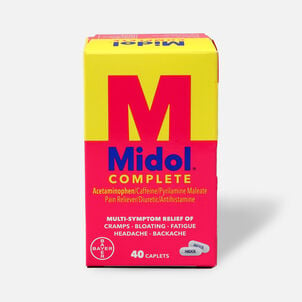We've mentioned it many times on this site, but high deductible health plans (HDHP) can be difficult on your wallet if you're not prepared. A lot of spending happens before your insurance kicks in, which means a lot of receipts. But health savings accounts (HSA) can ease the sting by offering a few different ways to save. With a tax-advantaged healthcare plan like an HSA, your money goes in before paying taxes, it grows tax-free, and you can use it anytime for qualified expenses — that’s the HSA triple-tax benefit.
When it's time to pay for expenses, you may know the choices:
- Swipe your HSA debit card (make sure there are sufficient funds in your account)
- Pay out of pocket and reimburse yourself later
If you forgot to pay yourself back for last year's eye exam, we've got some good news — there's no deadline to get that done. However, there are some things you should also consider before emptying your account.
First and foremost, know that we're not tax professionals, nor should this article be considered professional tax or financial advice. To find the best solutions for your needs, be sure to speak to a qualified tax or financial professional before making any decisions.
The HSA contribution limits for 2024 are $4,150 for individuals and $8,300 for families.
There's no deadline for HSA reimbursements
There are lots of reasons to love your HSA, and here's one more — you can reimburse yourself for expenses years after they occurred. According to the IRS, there is no time limit for paying yourself back, but there are some rules (we'll explain more below). You can't reimburse yourself for expenses incurred before you had an HSA. They're also expecting you to keep meticulous records.
Always keep immaculate records
Being audited is every taxpayer's worst nightmare. If this happened to you, and your HSA distributions were suspect, here's what the IRS would look for:
- Your HSA withdrawals were only used to pay for qualified medical expenses.
- Your medical expenses weren't paid for or reimbursed reimbursed from your health insurance plan or benefit other than your HSA
- You didn't take an itemized deduction for these medical expenses in any other year. (That's double-dipping!)
Saving receipts and keeping detailed records is always a must. If you take a distribution, your HSA provider will send you Form 1099-SA. Be prepared to report everything with Form 8889. If anything doesn't match, resolve it before filing your taxes.
Itemized receipts should match your HSA withdrawals to the penny. Don't be afraid to call drug stores, doctor's offices, or hospitals for receipts. Their billing department will have access to a line-by-line breakdown of the year's spending.
Timing is important, though. You may have better luck chasing down receipts in November than the first week in April. Your odds of a tax audit may be low, but that's no excuse to get lazy with paperwork.
Reimbursing yourself now means less money for retirement
It's hard to say more choices are bad, but allowing your money to grow may be better. Healthcare will be one of your biggest expenses in retirement. By investing your HSA money now, you could end up with more options when you need it most.
Be careful with multiple years of reimbursements
You might be thinking, with no reimbursement deadline you can pay for medical expenses out-of-pocket and stockpile your receipts. Then, you can cash them in many years later and reimburse yourself in large lump sums. Well, you're not the first one to consider this. Plenty of folks have been doing this for years.
What appears to be the "ultimate hack" requires an extreme level of discipline, but it can be done. Staying on top of receipts for many years isn't easy. And not everyone is equipped to handle that level of record-keeping.
If you decide to reimburse yourself many years later, and the IRS sniffs around, they may ask for proof. Find assurance in HSA Store’s 100% eligibility guarantee — this gives you peace of mind for every order placed with HSA Store — we keep record of every item that was purchased while logged into your HSA Store account.
But audits do happen, and if you can't provide detailed records, you could get stuck paying income tax, plus a 20% penalty, on those withdrawals.
-
Thank you for visiting the HSA Store Learning Center. Don’t forget to follow us for more helpful tips on Facebook, Instagram, and Twitter.



.png)
















